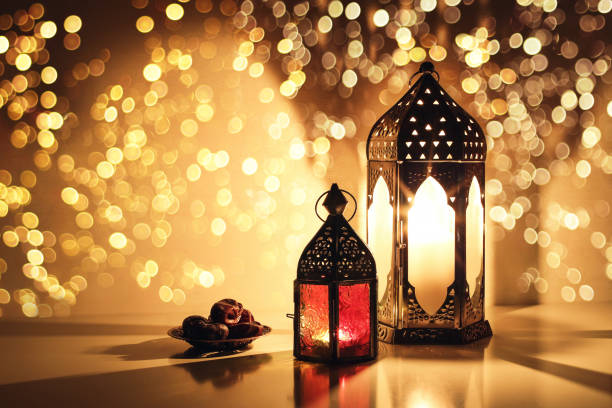March 17, 2025 by Areeba Suleman (‘26)
Imagine, if you will, strangers banging drums right outside your door at 4 in the morning. You wake up, still groggy, and glance out the window. The entire city is awake; children running through the streets, playing tag, and distributing the food their mothers had asked them to deliver to their neighbors. “My mom said to bring the plates back,” is a sentence any child in a family that observes Ramadan can relate to. I remember running to my neighbors’ houses, carrying the food I could hardly wait to eat, only to remind them to return the plates, for my mother was always protective of her beloved plates. Ramadan, growing up, was the best time of the year for me. From late-night shopping trips for Eid to daily Iftar parties at a different friend’s house, Ramadan was a month that anchored my childhood with warmth, laughter, and shared meals-a whole month of celebration, community, and unforgettable memories.

Ramadan is the ninth month of the Islamic calendar, a month observed by Muslims worldwide as a time for fasting, prayer, reflection, and a deep sense of community. This year, Ramadan will be celebrated from Saturday, March 1st to Saturday, March 29th. This date, however, is tentative, as it follows the lunar cycle, changing with the moon’s phases. During this month, Muslims fast from the first light of dawn until sunset, refraining from eating or drinking anything. Yes, even water. It is a fast not just from food but also from bad habits. The purpose of fasting is to instill discipline and patience, to help us reconnect with our faith and with one another. In a world that thrives on instant gratification, Ramadan teaches us to slow down, to be mindful, and to focus on what truly matters: the shared experience of humanity, the love for life’s little pleasures, and an understanding of the privilege we hold in being able to eat and drink when so many others do not. What I wish to convey is that Ramadan is less about the act of fasting and more about the lessons we learn along the way.
Ramadan in the United States, though marked by its own quiet beauty, is quite different from Ramadan in my home country of Pakistan. Here, there are no streets adorned with colorful lights that twinkle throughout the day, no sound of children’s chatter at 5:30 in the morning, no late-night shopping runs. Yet, despite these differences, the true essence of Ramadan remains unchanged. I find it in the immediate satisfaction I feel at Iftar, the way my hunger dissipates in just fifteen minutes after the fast ends, a reminder of how fleeting and temporary all pleasures are. I feel it in the quiet thoughtfulness of those around me, the gentle acts of kindness, and the curiosity in the questions asked by those who want to understand.
But the most joyous part of Ramadan, without a doubt, is the celebration of Eid-ul-Fitr. After a month of fasting, reflection, and devotion, Eid marks the end of Ramadan and is a grand celebration of togetherness, gratitude, and joy. The streets come alive with festivities, and there is a palpable sense of excitement in the air. For children, Eid is nothing short of magical. They wake up early, dressed in their finest clothes, eagerly awaiting the moment when they can visit relatives, receive Eidi (a special gift, usually money) and enjoy all the delicious sweets and treats that fill the air with their sugary fragrance. The sound of laughter fills the rooms as families gather for large feasts, and everyone, young and old, exchanges warm wishes of “Eid Mubarak.” So, at the end of the day, I hope this article has helped you understand that Ramadan is not just about fasting; it is a month of celebration, reflection, and learning. And to any student at Saratoga Springs High School who is fasting, I hope you feel seen and understood. May this sacred month bring you peace, reflection, and a deeper sense of connection to those around you, and may your Eid be filled with happiness, laughter, and the joy of giving.
